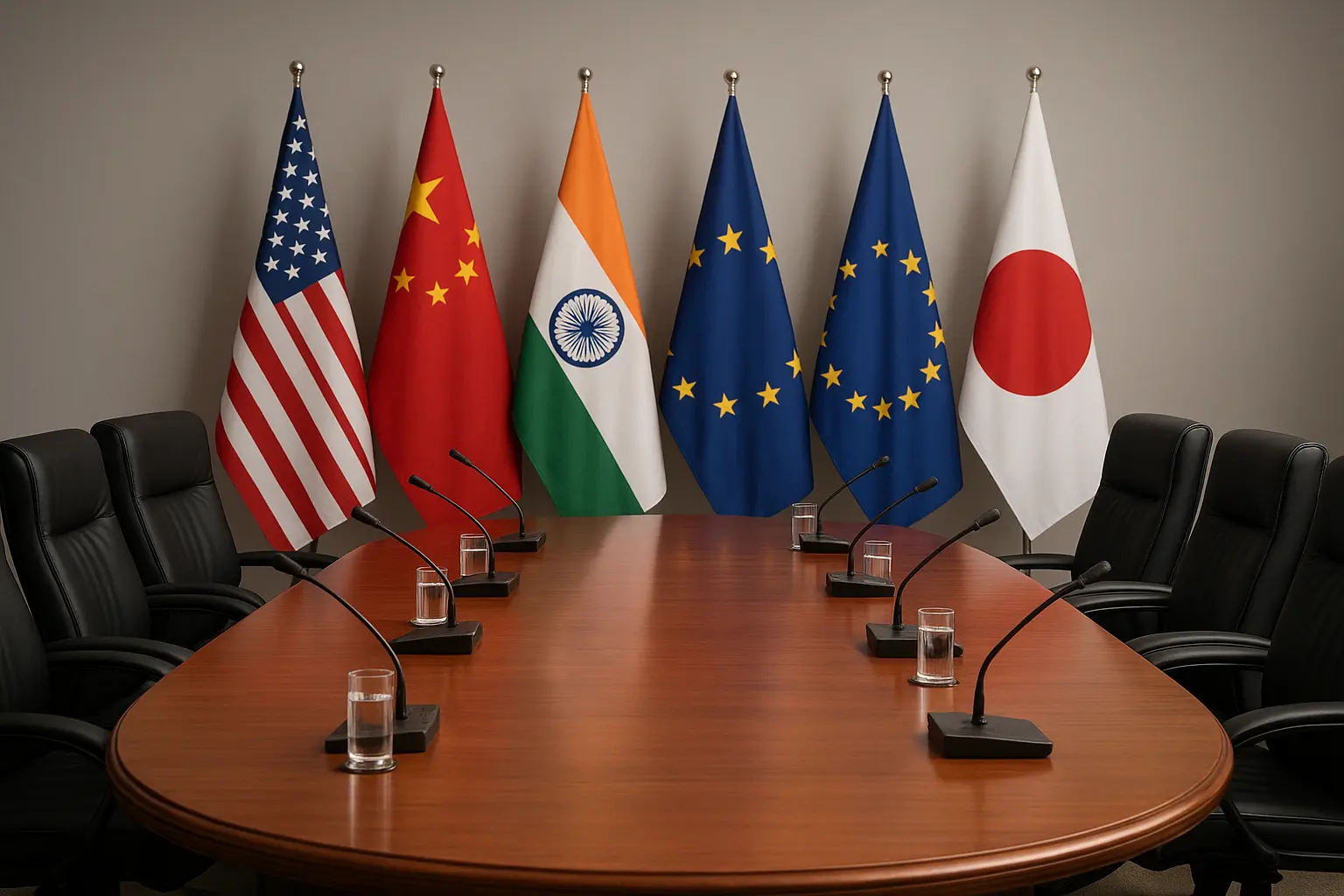In an increasingly interconnected world, economic policies crafted in one region can ripple across continents. The Group of Twenty (G20) — comprising the world’s major advanced and emerging economies — plays a vital role in maintaining this delicate balance. Established in 1999 after the Asian financial crisis, the G20 has evolved from a finance ministers’ forum into a premier platform for global economic coordination, addressing challenges ranging from financial crises to sustainable development.
Today, with global economies facing inflationary pressures, rising debt, and geopolitical disruptions, the G20’s role in shaping global economic stability has never been more crucial.
The Evolution of the G20
The G20 was born out of necessity. The late 1990s exposed the vulnerabilities of global financial systems when regional crises triggered worldwide economic shocks. The forum initially focused on financial coordination among finance ministers and central bank governors. However, after the 2008 global financial crisis, the G20 was elevated to the level of heads of state — transforming it into a central stage for shaping international economic policy.
The group includes 19 countries and the European Union, collectively representing more than 80% of global GDP, 75% of international trade, and around two-thirds of the global population. This unique composition allows the G20 to act as a bridge between advanced and developing economies.
Core Functions of the G20
The G20’s strength lies in its diversity and coordination capacity. Its primary functions include:
1. Crisis Management and Financial Stability
When global crises strike — such as the 2008 financial meltdown or the COVID-19 pandemic — the G20 acts as a coordination hub. During the 2008 crisis, the G20 launched joint stimulus measures, strengthened financial regulations, and worked with the IMF to stabilize the world economy.
Similarly, during the pandemic, it coordinated debt relief programs for low-income nations and supported the global vaccine initiative.
2. Policy Harmonization
Economic policies across major economies often differ, creating global imbalances. The G20 fosters dialogue to harmonize fiscal, monetary, and trade policies, preventing destructive competition or currency wars that could destabilize international markets.
3. Sustainable Growth and Development
Sustainability has become a core agenda of the G20. The forum promotes investment in green technologies, climate financing, and inclusive economic growth. The G20’s 2030 Agenda for Sustainable Development aligns with global efforts to reduce poverty, inequality, and environmental degradation.
4. Global Taxation and Financial Regulation
In recent years, the G20 has pushed for stronger financial oversight and fair global taxation. The 2021 agreement on a 15% minimum corporate tax rate — backed by G20 members — marked a historic move to curb tax evasion by multinational corporations.
G20’s Impact on Global Economic Stability
The G20’s ability to drive coordinated responses has been instrumental in preventing deeper economic collapses. Here’s how the forum directly contributes to stability:
Financial System Reforms
Post-2008, the G20 established the Financial Stability Board (FSB) to monitor and recommend improvements to global financial institutions. These reforms strengthened banking systems, introduced tighter capital requirements, and improved transparency in derivatives trading.
Debt Sustainability
Developing nations often face unsustainable debt burdens, threatening global recovery. The G20’s Debt Service Suspension Initiative (DSSI) provided temporary relief to 73 countries during COVID-19, allowing them to redirect funds toward healthcare and economic recovery.
Trade Facilitation
By encouraging open trade and resisting protectionism, the G20 has played a stabilizing role in global commerce. Though trade tensions persist, especially among major powers, G20 summits provide a platform for de-escalation and policy negotiation.
Climate Finance and Green Economy
Economic stability today also depends on environmental resilience. The G20 mobilizes climate financing and promotes renewable energy investments to ensure a transition toward sustainable economic models without triggering shocks in traditional markets.
Challenges and Criticisms
Despite its accomplishments, the G20 faces several challenges that limit its effectiveness.
1. Lack of Binding Authority
Unlike institutions such as the IMF or World Bank, the G20 does not enforce policies. Its commitments rely on voluntary compliance, which sometimes dilutes its ability to ensure collective action.
2. Geopolitical Divisions
Rivalries among major powers — especially the U.S., China, Russia, and the EU — often overshadow economic discussions. Political disagreements can derail progress on global issues like climate policy or debt restructuring.
3. Representation Concerns
While the G20 covers a vast portion of the global economy, smaller nations often feel underrepresented. Critics argue that global governance should include broader participation from developing regions beyond the current members.
4. Inequality in Outcomes
Even though the G20 emphasizes inclusive growth, benefits often tilt toward larger economies. The gap between rich and poor nations continues to widen, posing long-term risks to global economic balance.
The G20 in the Post-Pandemic Era
As the world recovers from pandemic disruptions and faces new economic headwinds — including inflation, energy crises, and supply chain instability — the G20’s leadership remains pivotal.
The forum’s focus has shifted toward three strategic goals:
-
Building Resilient Supply Chains: Enhancing cross-border production networks and reducing dependency on single regions.
-
Promoting Digital Transformation: Encouraging fintech innovation and digital inclusion.
-
Ensuring Climate-Resilient Economies: Mobilizing green finance and accelerating carbon neutrality targets.
The 2023 New Delhi G20 Summit marked a symbolic milestone, emphasizing inclusivity through the African Union’s inclusion as a permanent member — a move that broadened representation and strengthened the forum’s global legitimacy.
Future Outlook
Going forward, the G20 will continue to act as the nerve center of global economic coordination. However, its success will depend on its ability to transform political dialogue into actionable policy frameworks.
Emerging priorities — like AI regulation, digital currencies, and sustainable finance — will require collective innovation rather than competition.
If the G20 can overcome political divides and reinforce its credibility through tangible outcomes, it could serve as the stabilizing force that defines the next era of global economic governance.
Conclusion
The G20’s role in shaping global economic stability goes beyond conferences and communiqués — it represents a commitment to global cooperation in an increasingly fragmented world. From preventing financial collapses to promoting sustainable growth, its influence has been central to modern economic resilience.
As global challenges evolve, the G20’s ability to adapt, mediate, and lead collective action will determine not just economic stability, but the trajectory of international prosperity itself.












